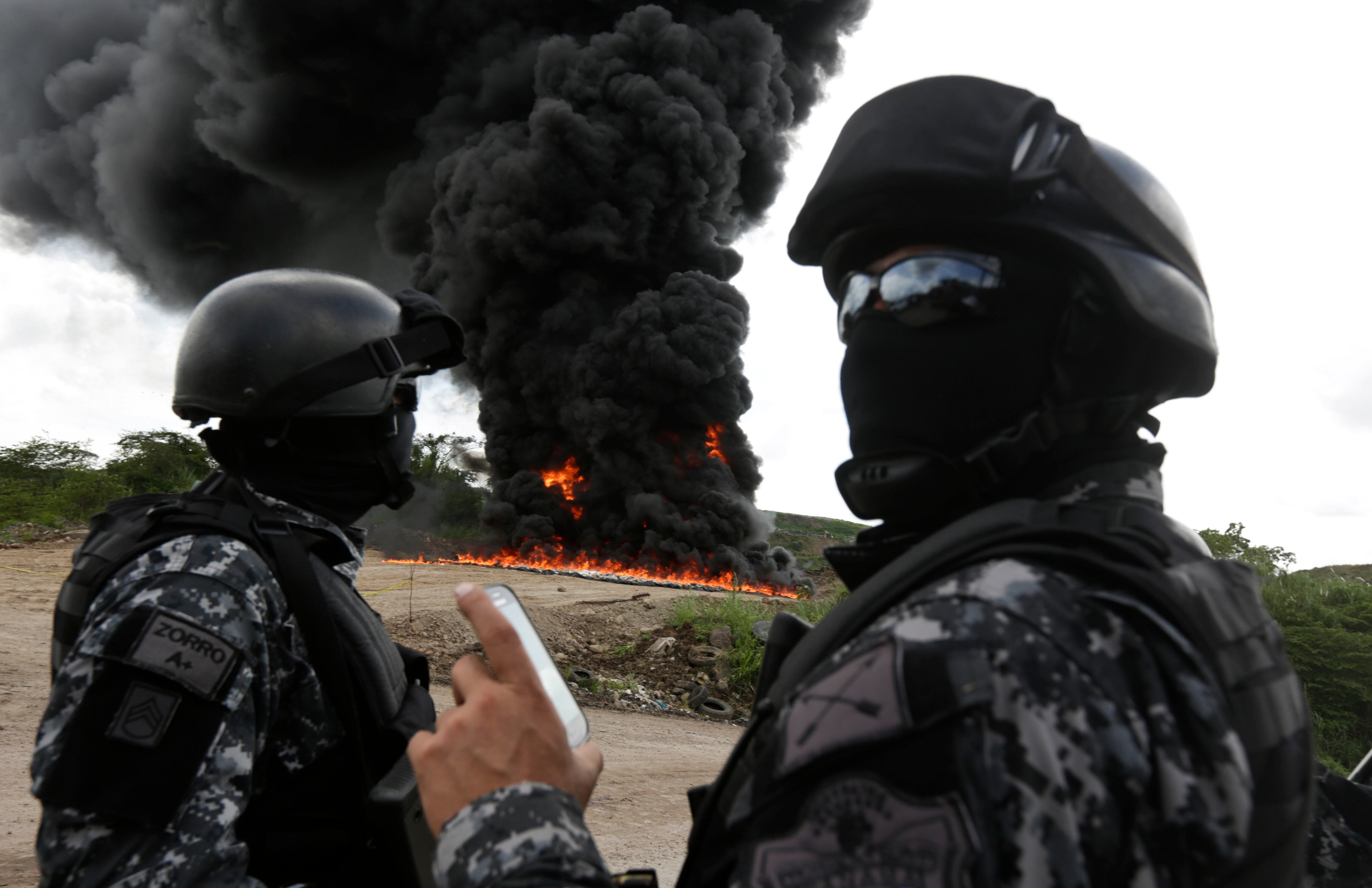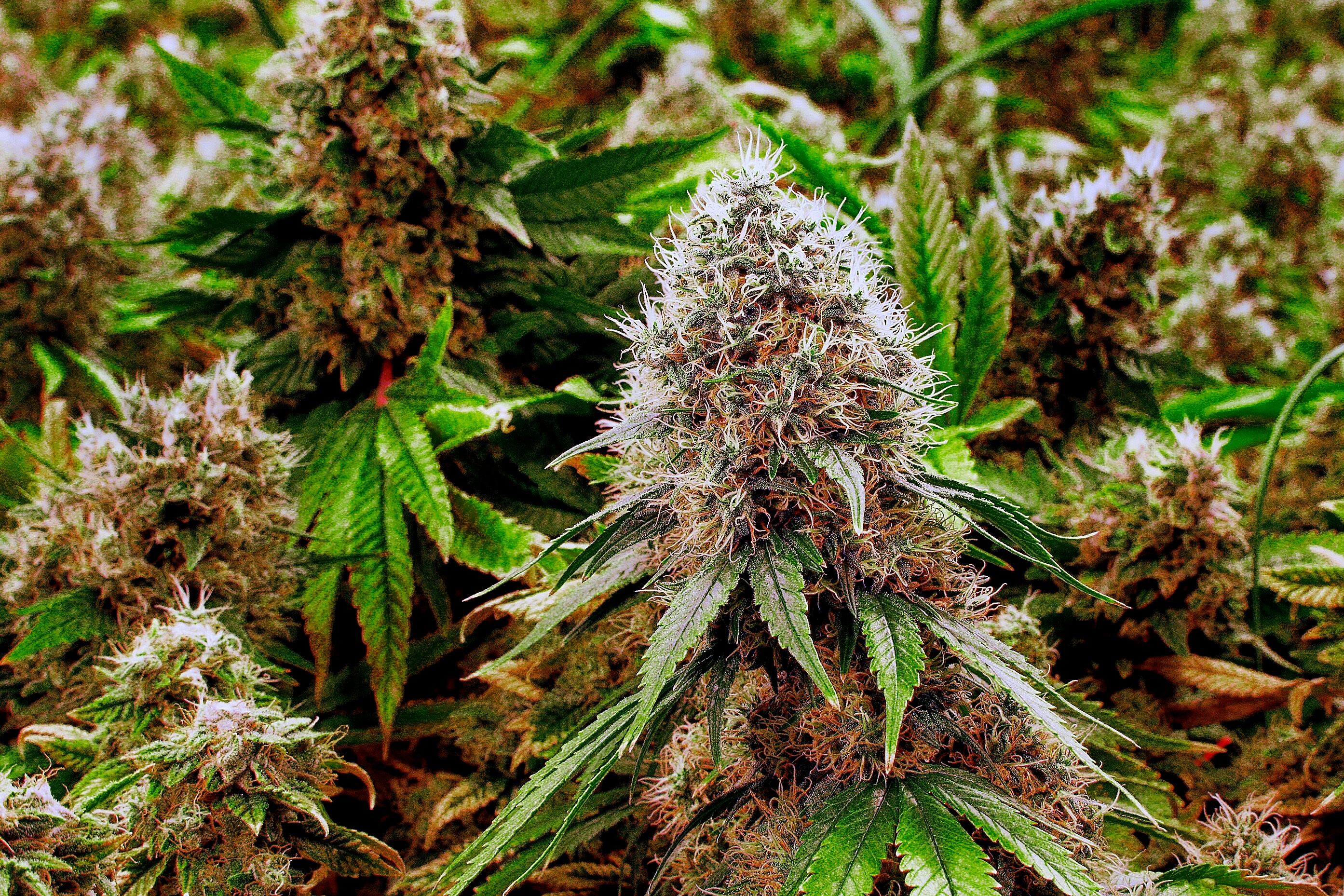Some U.S. states' softening stance on marijuana is complicating a broad federal effort to curtail the influx of cocaine, heroin and methamphetamine from Latin America, according to the four-star Marine Corps general who oversaw military activity in that region for the last three years.
"The actual legalization does cause us problems because — the hypocrisy," said Gen. John Kelly, who retires next month after completing his final assignment as the head of U.S. Southern Command, which is headquartered in Miami. "... Where you stand is where you sit. So if you're a Latin American, and we're harping on them to do more to stop the flow of drugs, they say: 'Wait a minute. As we look north, the real problem is the demand. So why don't you do more to stop the demand for drugs. ... Why would we do more when you seem to be legalizing this stuff?'"
Kelly spoke to Military Times on Jan. 8 at SOUTHCOM's satellite office in the Pentagon. Days later, he passed command of the organization to Adm. Kurt Tidd.
SOUTHCOM deploys U.S. military personnel throughout Central America, South America and the Caribbean, where they partner with other federal agencies in training foreign militaries and law enforcement to counter the region's powerful drug cartels, and improve local governance where criminal organizations operate. Mexico lies outside SOUTHCOM's area of oversight, but the network of illicit activity that begins in Latin America runs directly to the United States' southern border. The notorious Mexican drug lord Joaquin "El Chapo" Guzman Loera, whose arrest this monthand interview with actor Sean Penn have been the subject of intense media coverage, built a billion-dollar criminal enterprise from the cocaine produced Colombia.
Drug trafficking. Human trafficking. Weapons trafficking. It's all connected, Kelly said.
Most marijuana consumed in the U.S. is grown here or in Mexico, Kelly noted. Its recreational use is legal in Colorado, Oregon, Washington state and Washington, D.C. At least a dozen additional states have decriminalized pot, and more than a dozen others allow people to consume it with a doctor's prescription. Increasingly, those individuals include military veterans who suffer from post-traumatic stress and other service-connected injuries or illnesses. That doesn't bother the general, who led combat forces in Iraq as a one- and two-star general.
"I'm not a doctor," said Kelly, an infantry officer whose military career dates back to the Vietnam era, "but I'm told it has a medical use. So whether it's veterans or anyone else, if it helps those people, then fine. Medicine is medicine. Every medicine is probably illegal unless you take it medicinally."

Counter-narcotics agents destroy some 11 tons of marijuana, cocaine and heroin on the outskirts of Panama City. Kelly called the Panamanians "very good partners" in the war on drugs.
Photo Credit: Arnulfo Franco/AP
Marijuana use is up in Latin America, translating to more busts there year over year, according to the U.N.'s Office on Drugs and Crime. Yet most of the pot intercepts made by U.S. personnel in that region are "incidental," Kelly said. And it's often being moved into Latin America.
"If it's heading away from the United States, I don't care about it," he added. "I mean, we take it, we seize it, we take the people and put them in the legal justice system." Rather, the most intense focus is on the movement north of cocaine, heroin and meth. "When I talk drugs," Kelly said, "I talk hard drugs.
Drug cartels reap "insane profits" from the consumption of narcotics and stimulants in North America and Western Europe, Kelly said. And they do business with terrorist organizations. The French, in particular, monitor cocaine trafficking out of Martinique, an island nation in the Caribbean, he noted.
"We know," Kelly said, "that as that cocaine [bound for Europe] moves up through [Africa], ... some of the old al Qaida type organizations allow it to pass but charge a fare just like we know that some large amount of the money that comes out of the United States is laundered by banks and organizations in the Caribbean and Latin America that had relationships with Lebanese banks, and there's a certain skimming that we know goes into certain Islamic terrorist group coffers."
In its most recent report on the global drug trade, the U.N. estimates that cartels dealing in marijuana specifically have lost at least $3 billion in profit — a 20- to 30-percent cut — since Colorado and Washington moved to legalize pot. If a larger state like California were to go the same route, driving down prices in other parts of the U.S., there could be more serious consequences for traffickers in Mexico particularly, it says. What's unclear is how that could affect drug-related violence there.
To Kelly, pot is the gateway to more serious drug use. "There's no doubt," he said. Ripple effects can be seen in that region's horrific violence. El Salvador now has the world's highest murder rate, the worst experienced by any nation in the last two decades, according to the World Bank. That, in turn, drives the flood of migrants seeking refuge in the U.S.
"If Americans understood," Kelly said, "what doing a little blow on the weekends — on a college campus or here on Capitol Hill — was doing to Honduras or El Salvador, or what it's doing to Colombia, I think they'd responsibly realize that this is not a good thing."





